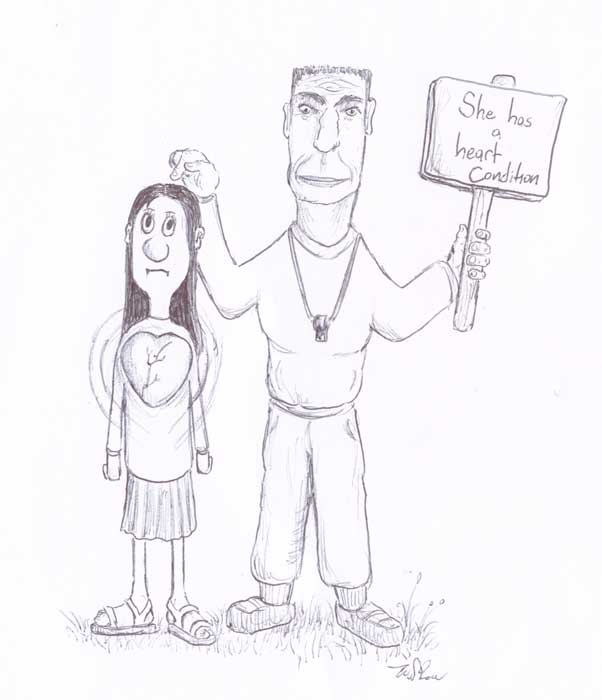
When I was four, my life changed dramatically.
I had just had pneumonia and was at my doctor’s office for a checkup.
Everything was going fine until he began listening to my heart and lungs through a stethoscope.
Something didn’t sound right, so they did an ultrasound on my heart.
The weird murmur-like sound that they heard was actually one of my valves not connecting properly and the blood rushing back into my heart, which was causing my heart to grow.
And that’s how I discovered that I have mitral valve prolapse.
It’s been a pretty bumpy 17 years since my initial diagnosis.
For instance, I’ve lived through taking medication for my condition until I essentially quit cold turkey when I was still in elementary school.
My cardiologist still isn’t happy about that. Now I’m in college, and he’s getting ready to retire.
I’ve also been a learning tool for many graduate students at UC Davis Medical Center since my heart condition is normally not accompanied by a strong and definite murmur.
I’m surprised that I’m not listed as an example for being a rare and special case in some medical textbook somewhere.
I’ve dealt with the hot shame that comes with my mother’s old tennis coach calling me out in sixth grade physical education class because I couldn’t live up to my All-American, MVP mother’s legacy, only to be told months later that I would never be able to play sports because it would literally kill me.
I’ve felt and seen all of the stares when I had to wear a 24-hour heart monitor every day during junior high.
I’ve heard people say, “Don’t talk to her, she has a heart condition and you’ll catch it,” after my PE teacher told the whole class about my condition when people complained that I was being lazy and walking the mile when everyone else had to run it.
And I’ve stood on the sidelines of high school football and basketball games, watching the cheerleaders doing their routines and wishing that I was normal because I’d always wanted to be a cheerleader like my aunt and a basketball player like my mom.
But after all the good and bad that’s happened in these past 17 years, I’ve learned a few things.
For one thing, I know I’m lucky to be alive. Most people with mitral valve prolapse don’t have a pronounced or any murmur, so their condition ends up being a silent killer since they end up overworking their hearts.
I’ve also come to terms with my mortality. This thing could kill me, but knowing that only makes every day sweeter.
Ultimately, living with this disease has helped shape me into the person I am today, so I guess I owe a lot to that annoying murmur.
I might not fit the bill for what people think of when they think of someone with heart disease, but I am a poster child for living with one.
After all, there’s no use crying over a broken heart, both romantically and literally.
Megan Mann can be reached at [email protected] or @meganisthemann on Twitter.








